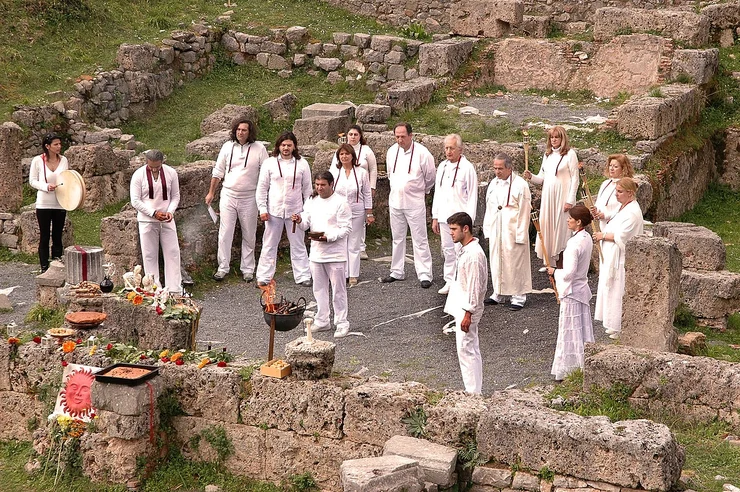Neopaganism in Contemporary Greece: Beliefs, Practices, and the Symbolic Struggle over Hellenicity/Greekness
Duration
09/2024
- 08/2027
Funding
Deutsche Forschungsgemeinschaft (DFG) :
342 000 Euro
Project management



The project is based at Professor Vasilios Makrides' Professorship of Religious Studies (Cultural History of Orthodox Christianity) and is being worked on by Dr Efstathios Kessareas.
Over the next three years, the philologist and (religious) sociologist will be investigating the multi-layered neopagan scene - i.e. people from various religious movements who feel connected to pre-Christian natural religions - in Greece today. A research desideratum in several respects: For although the so-called "folk" or "neo-pagan religions" are a phenomenon that can be observed internationally, in a number of European countries (and beyond), the modern Greek case has a number of special features, particularly because of its connection to ancient Greek polytheism and the fierce criticism of the Greek Orthodox Church, the modern Greek state, the academic ancient studies establishment and the country's official ideology about the historically harmonious connection between Hellenism and Christianity. The research project at the University of Erfurt now aims to investigate Greek Neopaganism both "internally" (in terms of beliefs, ritual practices, structure) and "externally" (e.g. influences, co-operation, conflicts, recruitment strategies, public relations) in a differentiated, detailed and systematic way. Methodologically, both a qualitative content analysis and field research with targeted interviews are planned. The results will then be made available to both academic and non-academic audiences in conferences, specialist articles, blog posts and a monograph on the subject.
The neopagan scene in Greece is made up of a large number of small groups and organisations that share some common characteristics (e.g. idealisation of antiquity, nature worship, polytheism vs. monotheism), but differ in terms of aspects of faith, ritual practice and political ideology. A stronger presence and visibility of such movements can be observed from the 1980s onwards, when Greek society gradually liberalised. In this context, some neopagan organisations were able to gain legal recognition, even though the neopagan scene as a whole is still marginalised by many in the country today.
This project is not only essential for a better understanding of the religious and cultural landscape of Greece today",
says Professor Dr Vasilios N. Makrides, who will supervise the project at his professorship. "It will also address topics of extraordinary relevance for a comparative study of neopagan movements in a pan-European context, which could be theoretically useful for religious studies and other social and cultural sciences."
